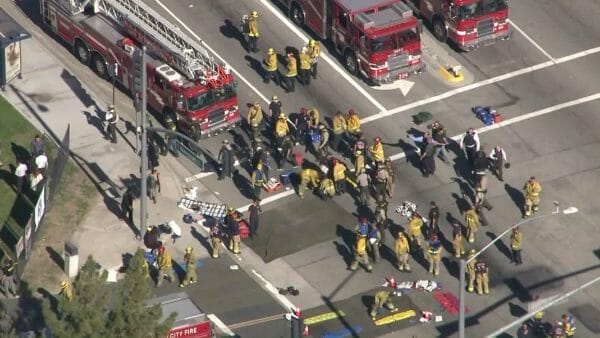
Fayetteville, AR –-(Ammoland.com)- The mass shooting at the high school in Parkland, FL has put the country back on the cycle of calls for thoughts and prayers and #GunReformNow from the various choruses that parade across our political stage each time we go through these tragedies.
Note that I’m using the word, tragedy, properly here to mean a bad end that comes about through a flaw in the nature of the characters involved. Tragic heroes flail and stumble through the course of the play, declaring their desire to avoid the disasters that their own actions are causing. And the audience cringes at the irony since we know how things will turn out.
Our tragedy is not that as a nation, we’ve chosen not to impose the kinds of gun controls that one of the choruses keeps demanding. Those controls, just like thoughts and prayers, are busywork designed to make us feel that we’ve accomplished something—or to make us feel that we did the best that we could in the face of remorseless fate.
Debating this subject leaves me feeling like Tiresias, the seer in Greek mythology who is ignored or reviled by the heroes and the choruses until the truth finally dawns on them. There are solutions to violence, but they are things that both sides have so far been unwilling to work together on.
For one thing, as has been the case in many of the famous cases of mass shooters, the current example in Florida gave multiple warning signs before committing his act of horrific violence. The shooter made threats of violence repeatedly and has been reported as having abused his ex-girlfriend. These are criminal acts as well, and if we are intent on reducing mass shooting specifically and violence in general, treating threats and domestic abuse seriously is a good place to begin. Unfortunately, law enforcement attends more to the aftermath of crimes than to prevention.
We also need to address what makes disaffected people feel that killing lots of their fellow human beings is a good idea. No, mental illness and being bullied in school do not inevitably lead to violence, but both diminish the quality of life of many in this country, and dealing with those would go a long way toward reducing the social pressures that lead some to lash out.
The point here is that mass shootings are a symptom of a disease. Going after the symptom without understanding what causes it means that we’ll never have any effective solution. Now some will say that in disease management, we do treat symptoms, but that’s only when we know that the treatment won’t make things worse. Children who have fevers aren’t given aspirin, and if someone goes to the emergency room complaining of a headache, the doctors and nurses will perform tests to distinguish among strokes, tumors, and sinus congestion before administering drugs.
By analogy, if we push for bans on classes of firearms without figuring out what makes someone want to kill a lot of people, such would-be killers will use trucks or cans of gasoline or some new tool that we haven’t realized could be employed in that way yet.
The real question here is whether we will seek solutions that work or will continue repeating the failures of the past.
About Greg Camp
Greg Camp has taught English composition and literature since 1998 and is the author of six books, including a western, The Willing Spirit, and Each One, Teach One, with Ranjit Singh on gun politics in America. His books can be found on Amazon. He tweets @gregcampnc.
